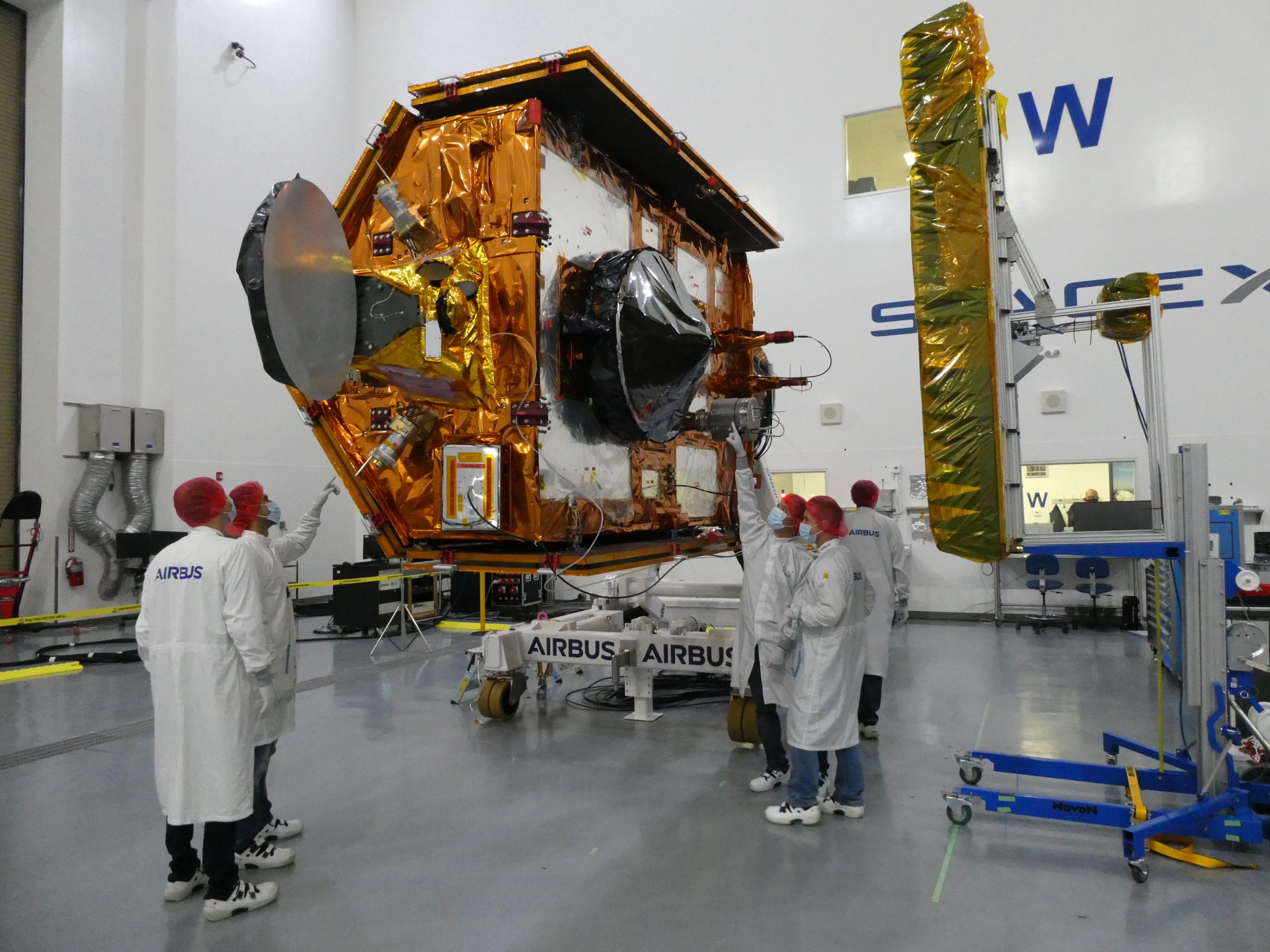The SpaceX Falcon 9 first stage returns to Earth and lands vertical at Vandenberg Air Force Base in California on Nov. 21, 2020.
Category: Uncategorized
Launch and Separation Events
A series of events occur after launch. The SpaceX Falcon 9 rocket’s first stage main engine will cut off, followed by separation from the second stage. The second stage will ignite, followed by payload fairing jettison from the Sentinel-6 satellite. The second stage will cut off and then restart to put the satellite in the proper trajectory. About a minute later, the second stage will cut off and the Sentinel-6 will separate from the second stage. The Falcon 9 first stage will return through Earth’s atmosphere for a vertical landing.
Launch Director – ‘Go’ For Launch
Strongback Retracted from the SpaceX Falcon 9 Rocket
At the launch pad, the strongback has been retracted from the SpaceX Falcon 9 rocket.
Counting Down to Launch of SpaceX Falcon 9 Rocket with Sentinel-6 Michael Freilich Satellite
Mission and launch managers are counting down to the launch of the Sentinel-6 Michael Freilich satellite atop the SpaceX Falcon 9 rocket from Space Launch Complex-4 at Vandenberg Air Force Station in California.
Welcome to Sentinel-6 Coverage from Kennedy Space Center
Good morning! And welcome to live blog coverage for the Sentinel-6 Michael Freilich mission. The satellite will launch atop a SpaceX Falcon 9 rocket from Vandenberg Air Force Base in California. Launch time is targeted for 9:17 Pacific Standard Time, that’s 12:17 Eastern Standard Time.
The launch is managed by NASA’s Launch Services Program, based at the agency’s Kennedy Space Center in Florida. Our coverage on the blog originates from the NASA News Center at Kennedy Space Center. Stay tuned for more updates as we count down to launch for this exciting mission.
Live Coverage of Sentinel-6 Michael Freilich Begins
Sentinel-6 Michael Freilich Launch Update

Editor’s Note: Updated on Nov. 4, 2020, to show a launch time of 12:17 p.m. EST (9:17 a.m. PST).
NASA and SpaceX now are targeting Saturday, Nov. 21, at 12:17 p.m. EST (9:17 a.m. PST) for the launch of the U.S.-European Sentinel-6 Michael Freilich ocean-monitoring satellite on a Falcon 9 rocket from Space Launch Complex 4E at Vandenberg Air Force Base in California.
The additional time allowed SpaceX to complete Falcon 9 Merlin engine testing and inspections following an on-pad abort during a non-NASA mission.
After completing engine testing and inspections, teams from NASA and SpaceX have determined that two engines on the Sentinel-6 rocket’s first stage would need to be replaced to ensure optimal performance during launch. Work is now progressing to implement the engine change and all engine hardware replacements will finish next week.
NASA’s Launch Services Program, SpaceX, NASA’s Jet Propulsion Laboratory, and the European Space Agency continue the diligent work of preparing both the spacecraft and rocket as the launch campaign moves forward.
NASA and SpaceX continue to target Saturday, Nov. 14, for the launch of the agency’s Crew-1 mission to the International Space Station.
